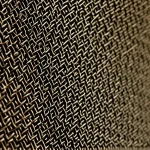Key UK Women’s Fashion Trends Leading Sustainability
The UK women’s fashion trends landscape is increasingly shaped by sustainability. A defining trend is the rise of slow fashion, which focuses on quality over quantity, encouraging consumers to buy fewer but longer-lasting items. This shift is driving designers to prioritize eco-friendly clothing materials and ethical manufacturing practices.
Conscious consumerism has surged, with shoppers more mindful of the environmental impact of their choices. This awareness pushes brands to innovate with sustainable fabrics like organic cotton, recycled polyester, and plant-based dyes. In response, UK fashion houses are balancing style with responsibility, proving that eco-consciousness and elegance can coexist.
Have you seen this : How Are Sustainable Materials Revolutionizing UK Women’s Fashion?
Leading the charge are prominent UK brands and designers who publicly commit to sustainability. They integrate transparency in their supply chains and adopt circular fashion models, such as take-back schemes and garment recycling. These initiatives not only reduce waste but also influence broader UK women’s fashion trends by setting new standards for environmental and social accountability.
As a result, the fusion of eco-conscious principles with contemporary aesthetics is reshaping the market. This encourages a culture where sustainable fashion becomes the norm, inviting women across the UK to embrace styles that respect both people and the planet.
In parallel : How Are Sustainable Materials Revolutionizing UK Women’s Fashion?
Sustainable Aspects of Current Fashion Movements
Exploring key sustainable fashion aspects reveals how UK designers embrace eco-conscious design to transform the industry. The use of eco-friendly clothing materials such as organic cotton, recycled fibers, and plant-based dyes underpins many collections. These choices reduce environmental harm by minimizing water consumption, chemical use, and textile waste during production.
The UK’s growing vintage and upcycling culture enhances UK fashion sustainability by giving old garments new life, encouraging a circular approach. Circular fashion models promote garment repair, resale, and recycling, extending the lifecycle of items and reducing landfill impact. This movement not only supports sustainability but also offers unique style options for women seeking individuality without environmental compromise.
Ethical production methods are also central to sustainable fashion aspects. Fair wages, safe working conditions, and transparent supply chains align with consumer values and bolster social benefits across the sector. Embracing these principles fosters a stronger, more responsible UK fashion industry that balances profitability with positive social and environmental outcomes.
In summary, sustainable trends in UK women’s fashion focus on materials, production ethics, and circularity, offering a comprehensive route to reducing the sector’s environmental footprint while promoting social good.
Key UK Women’s Fashion Trends Leading Sustainability
Sustainability shapes vital UK women’s fashion trends, with slow fashion leading the way. Slow fashion emphasizes quality pieces over mass-produced items, promoting durability and timeless designs. This approach reduces waste and encourages thoughtful purchases, aligning with the growing wave of conscious consumerism across the UK.
Such consumer awareness influences brands to integrate eco-friendly clothing into their collections. Popular materials include organic cotton, recycled polyester, and plant-based dyes, which lessen environmental footprints by cutting down water use and chemical pollution.
Top UK designers and brands also commit publicly to sustainability, embedding transparency and ethical practices throughout their supply chains. These leaders harness circular fashion models like garment take-back schemes, and repair services, encouraging reuse rather than disposal.
As a result, sustainability is no longer a niche but a driving force in mainstream UK women’s fashion trends. This shift reflects a clear message: eco-conscious choices can coexist with style, empowering women to support brands that prioritize the planet without compromising on elegance or innovation.
Key UK Women’s Fashion Trends Leading Sustainability
The UK women’s fashion trends are increasingly driven by a commitment to sustainable fashion principles. A central trend shaping the landscape is slow fashion, which encourages investing in fewer, high-quality pieces designed for longevity. This shift moves away from fast, disposable styles towards garments that combine durability and timeless appeal.
Conscious consumerism furthers this impact, as UK shoppers demand greater transparency and eco-consciousness from brands. This demand has led designers to innovate with eco-friendly clothing materials such as organic cotton and recycled fabrics, reducing environmental harm throughout production. These materials also support ethical sourcing and minimize chemical use, aligning with broader sustainable goals.
Leading UK brands and designers actively prioritize sustainability by embedding these values into their core operations. Many promote circular fashion through initiatives like garment recycling programs and transparent supply chains, enhancing accountability. This growing focus underpins an evolving market where ecological responsibility is now a defining attribute of UK women’s fashion trends. As a result, the industry demonstrates that style need not be sacrificed for sustainability, empowering consumers to make fashion choices that benefit both the planet and their wardrobes.
Key UK Women’s Fashion Trends Leading Sustainability
UK women’s fashion trends increasingly reflect a strong commitment to sustainable fashion, reshaping how consumers and designers approach style. A dominant trend is slow fashion, which prioritizes quality and longevity over fast, disposable items. This approach encourages women to invest in timeless pieces that reduce environmental impact through durability, promoting thoughtful purchasing decisions.
Coupled with this is the rise of conscious consumerism—UK shoppers actively seek transparency and eco-awareness from brands. This consumer demand compels designers to innovate with eco-friendly clothing materials such as organic cotton, recycled fibers, and plant-based dyes. These fabrics significantly reduce water usage and chemical pollution, aligning fashion production with environmental priorities.
Notably, high-profile UK brands and designers are embedding sustainability at their core. They adopt circular fashion strategies like garment recycling and take-back programs, while ensuring ethical production practices. Such initiatives exemplify how the industry balances aesthetic appeal with responsibility, empowering women to embrace style choices that support the planet.
The momentum behind these UK women’s fashion trends demonstrates that sustainable fashion is no longer an alternative but a defining standard, reflecting evolving values and a market ready for eco-conscious innovation.






